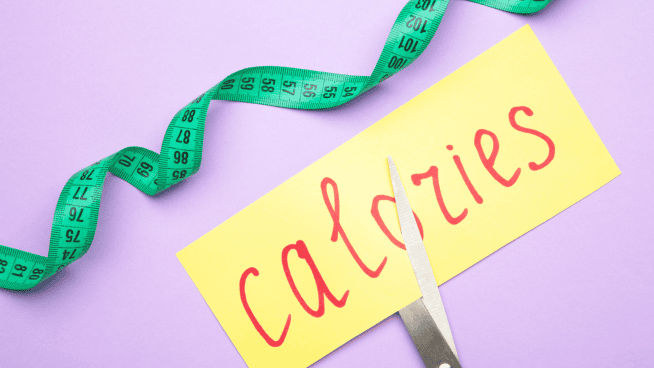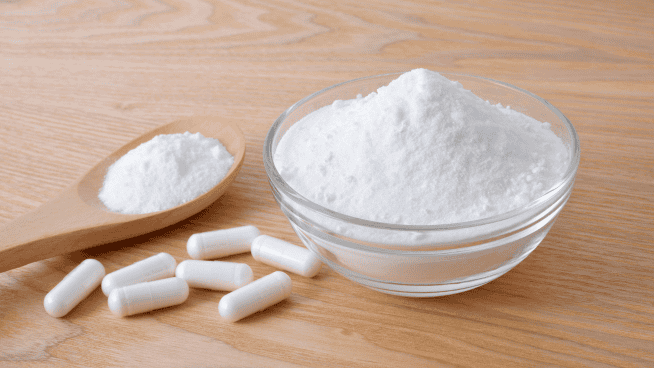3 Protein Myths Athletes Need to Stop Believing
Adequate protein consumption is necessary for any athlete. Not only does it help build muscle, but it can aid in losing fat, maintaining strong connective tissues and improving the quality of bones and skin. Unfortunately, there is a ton of confusion out there about protein.
- How much protein should I eat?
- When is the best time to eat protein?
- Will protein make me gain weight?
- Are certain protein sources better than others?
As people have began asking more questions about protein, there’s been a rise in misinformation, uncertainty and confusion. Fortunately, we now have more answers. Many of the previous “guidelines” surrounding protein have now been proven as myths, and we now have a much clearer picture of what is and what is not important when it comes to dosing this vital macronutrient.
With that in mind, here are three big protein myths you need to stop believing.
1. Your Body Can Only Absorb 20 Grams of Protein at One Time
This might be the single-most popular protein myth. It generally goes as follows: “Your body can only absorb 20 grams of protein at one time, and the rest is stored as fat. This means that you need to eat at least 6-7 times a day to “stoke the metabolic fire” and make the most of your meals.”
It sounds convincing enough, but the truth is that protein is not all digested at one time. There are many different “speeds” of protein, and while some are fast-acting and are absorbed quickly, others take much longer. When protein is consumed with other macronutrients, carbohydrates and fat, the absorption time of the protein is delayed. Also, the body will not store the vast majority (99%) of excess protein as fat. If protein is not absorbed by muscle, it is used for building other vital body tissues, oxidized for energy, or broken down and excreted. Having said that, 40 grams of protein in a sitting is plenty if your goal is muscle protein synthesis, but consuming beyond that isn’t necessarily “a waste”—on the contrary, it can serve some pretty useful purposes around the body.
Total protein consumption throughout the day is more important than how much you have at any given meal. Shooting for 1 gram of protein per pound of body weight per day is a reasonable target. In an ideal situation, aim to split daily protein equally throughout all meals. So if you’re a 160-pound athlete who has four meals per day, 40 grams of protein per meal is a great goal.
2. You Need Protein Immediately Post-Workout or You Won’t Build Muscle
The myth: “The 30-minute post-workout ‘anabolic window’ is the ideal time for gains. If you don’t chug a protein shake within that time frame, your workout was useless, and you can kiss all of that potential muscle gain goodbye.”
No doubt you’ve heard something similar from your local meathead. Now, time for the facts. Most importantly, total protein consumption throughout the day reigns supreme. Working out spikes muscle protein synthesis for an extended period of time (as much as 24 hours or so), so as long as you are adequately fueling your body throughout the day, you’re in good shape. Having a hearty pre-workout meal a few hours before training also delays the necessity for anything immediately post-workout (and can make you feel stronger and more energized during the training session).
Consuming some protein post-workout may still be a good practice, but it’s definitely not the be-all and end-all, and it doesn’t need to come within a magic “window.” Plan to have a protein-packed meal or shake within 2-3 hours post-training to begin refueling and rebuilding. The only situation in which you want to prioritize more immediate post-workout protein is if you are training “fasted” (first thing in the morning or more than 4 hours since your previous meal). In that case, try to snack on something as soon as possible post-workout.
3. You’ll Never Get Serious Muscle Without Protein Powder
The myth: “Protein powder is essential to building muscle. All of the top bodybuilders and athletes use it, so it must be necessary.”
Once again, the facts tell a different story. And again, the number one fact that debunks this myth is that total protein consumption throughout the day is what’s most important. While protein powder can be a cheap and efficient way to meet your daily protein requirement, it definitely is not a necessity. If you are getting adequate protein from other sources (meat, poultry, seafood, eggs, greek yogurt, cottage cheese, etc.), then you don’t need to take protein powder.
Since most people have a hard time meeting their daily protein requirements (about 1 gram of protein per pound of bodyweight), I still believe protein powder can be a valuable supplement to help you hit that number. But, at the end of the day, that’s what protein powder is—a supplement. The vast majority of your nutrients should still come from real food. As a rule of thumb, try not to exceed 1-2 scoops of protein powder per day. And if you’re a high school athlete reading this, just eat more lean meat.
READ MORE:
RECOMMENDED FOR YOU
MOST POPULAR
3 Protein Myths Athletes Need to Stop Believing
Adequate protein consumption is necessary for any athlete. Not only does it help build muscle, but it can aid in losing fat, maintaining strong connective tissues and improving the quality of bones and skin. Unfortunately, there is a ton of confusion out there about protein.
- How much protein should I eat?
- When is the best time to eat protein?
- Will protein make me gain weight?
- Are certain protein sources better than others?
As people have began asking more questions about protein, there’s been a rise in misinformation, uncertainty and confusion. Fortunately, we now have more answers. Many of the previous “guidelines” surrounding protein have now been proven as myths, and we now have a much clearer picture of what is and what is not important when it comes to dosing this vital macronutrient.
With that in mind, here are three big protein myths you need to stop believing.
1. Your Body Can Only Absorb 20 Grams of Protein at One Time
This might be the single-most popular protein myth. It generally goes as follows: “Your body can only absorb 20 grams of protein at one time, and the rest is stored as fat. This means that you need to eat at least 6-7 times a day to “stoke the metabolic fire” and make the most of your meals.”
It sounds convincing enough, but the truth is that protein is not all digested at one time. There are many different “speeds” of protein, and while some are fast-acting and are absorbed quickly, others take much longer. When protein is consumed with other macronutrients, carbohydrates and fat, the absorption time of the protein is delayed. Also, the body will not store the vast majority (99%) of excess protein as fat. If protein is not absorbed by muscle, it is used for building other vital body tissues, oxidized for energy, or broken down and excreted. Having said that, 40 grams of protein in a sitting is plenty if your goal is muscle protein synthesis, but consuming beyond that isn’t necessarily “a waste”—on the contrary, it can serve some pretty useful purposes around the body.
Total protein consumption throughout the day is more important than how much you have at any given meal. Shooting for 1 gram of protein per pound of body weight per day is a reasonable target. In an ideal situation, aim to split daily protein equally throughout all meals. So if you’re a 160-pound athlete who has four meals per day, 40 grams of protein per meal is a great goal.
2. You Need Protein Immediately Post-Workout or You Won’t Build Muscle
The myth: “The 30-minute post-workout ‘anabolic window’ is the ideal time for gains. If you don’t chug a protein shake within that time frame, your workout was useless, and you can kiss all of that potential muscle gain goodbye.”
No doubt you’ve heard something similar from your local meathead. Now, time for the facts. Most importantly, total protein consumption throughout the day reigns supreme. Working out spikes muscle protein synthesis for an extended period of time (as much as 24 hours or so), so as long as you are adequately fueling your body throughout the day, you’re in good shape. Having a hearty pre-workout meal a few hours before training also delays the necessity for anything immediately post-workout (and can make you feel stronger and more energized during the training session).
Consuming some protein post-workout may still be a good practice, but it’s definitely not the be-all and end-all, and it doesn’t need to come within a magic “window.” Plan to have a protein-packed meal or shake within 2-3 hours post-training to begin refueling and rebuilding. The only situation in which you want to prioritize more immediate post-workout protein is if you are training “fasted” (first thing in the morning or more than 4 hours since your previous meal). In that case, try to snack on something as soon as possible post-workout.
3. You’ll Never Get Serious Muscle Without Protein Powder
The myth: “Protein powder is essential to building muscle. All of the top bodybuilders and athletes use it, so it must be necessary.”
Once again, the facts tell a different story. And again, the number one fact that debunks this myth is that total protein consumption throughout the day is what’s most important. While protein powder can be a cheap and efficient way to meet your daily protein requirement, it definitely is not a necessity. If you are getting adequate protein from other sources (meat, poultry, seafood, eggs, greek yogurt, cottage cheese, etc.), then you don’t need to take protein powder.
Since most people have a hard time meeting their daily protein requirements (about 1 gram of protein per pound of bodyweight), I still believe protein powder can be a valuable supplement to help you hit that number. But, at the end of the day, that’s what protein powder is—a supplement. The vast majority of your nutrients should still come from real food. As a rule of thumb, try not to exceed 1-2 scoops of protein powder per day. And if you’re a high school athlete reading this, just eat more lean meat.
READ MORE:










